Part of my conversion from doubter to kool-aid drinking barefoot pilgrim came about because of word processing programs. Sure, Jack Kerouac could tape page after page of paper together so that his flow wasn't interrupted by something as distracting as inserting a new page into a typewriter, but for us mere humans, stories don't come out perfect the first time like that. Not to mention that I'm a lousy typist. Oh, I took a typing course. My high school teacher watched over my shoulder as I laboriously tried to duplicate a business letter, patted my shoulder, and said, "It's a good thing you're in MENSA, hon, 'cause you'd never cut it at an hourly job."
As a side note, one of my most irksome memories of high school was the career aptitude test. It was part SAT, part pounding square blocks into round holes with a timer going. Number one on the list of careers I had no aptitude for: writer. Not that it asked for a writing sample. No. It was all about dexterity. I have yet to figure out what pegs and holes have to do with the ability to write a coherent story. Maybe Jack Kerouac held the world's record for peg pounding. Not that his stories are completely coherent. Strangely enough, according to our profiles, the military was the best career fit for every Senior in my high school. And the test was sponsored by the Army. What were the odds? (Those of us who could calculate that number in our heads were told we were officer material. Those who made their square pegs fit by brute force were told they had a shinning future ahead of them as
Worse than composing on a typewriter was having to write by hand. Can you imagine the Bronte sisters, Jane Austin, and Mary Shelley with their quills? Good lord. Maybe they had fountain pens. Oh yes, that would have made it so much easier. *rolls eyes* At least with typewriters we had correction fluid. I swear that some papers I turned in to college professors were 99% white-out. If they could have chiseled away the layers micron by micron, it would have been like a literary archaeological dig, complete with one instance of blood sacrifice. (My cuticle was torn once while manually fixing mangled keys. Bled like a some-bitch all over my gushing essay/ love letter extolling the virtues of Joseph Conrad.) I remember when cut and paste meant literally taking scissors to an essay and taping the rearranged paragraphs on another sheet. (God I sound old)
Maybe I didn't hate to rewrite. Maybe I hated to retype. But one led to another, so I grew an aversion to reading my completed work. I preferred to hand it in and pray that the five papers before mine were so bad that my typos would be forgivable in comparison. The one girl on my dorm floor who was studying to be a secretary was publicly scorned most of the semester, but the night before papers were due, offerings were laid at her feet by humbled math majors. (There's a lesson there. Math majors are submissives. Okay, that's what I took away from it. Your take may differ.)
Ego is another reason why I hated rewriting. It seemed as if the story should come out perfect the first time. Maybe that attitude was simply inexperience. Maybe it was from sniffing too much correction fluid. Whatever the reason, the idea that the first draft had to be perfect hampered my writing for years. (Well, that and the people I grew up with. Don't get me started on them.)
Have you ever seen James Burke's The Day The Universe Changed series on PBS? It followed scientific thought through history and showed how disparate ideas improbably came together at a certain moment to create a breakthrough technology. Fascinating stuff if you're a geek girl like me. Anyway, the day I sneaked into my father's office and wrote a story on his KayPro's temperamental word processing software was the Day The Universe Changed for me. Cut and paste took about seven DOS commands, but it could be done. Hell, I was happy to be able to type without committing anything to paper until I hit the print button. From then on, composition would never be the same.
However, even having this miraculously easy way to edit my work didn't cure me of my dislike for rewrites. By then, it was a deeply ingrained prejudice. So How Did I Learn to Stop Worrying and Learn to Love the Rewrite? It took an editor who cared enough to splash red ink all over my story. It must have taken her hours. Considering what editors make on anthologies, editing my story with that much care was far beyond the call of duty. Instead of throwing a Diva fit when I saw all those suggestions, I studied what she'd done and incorporated them into my story. Oh. My. God. What a difference. That was the best writing class I ever took. I learned more from having that one story edited than I did in any of my college courses. It changed the way I looked at telling a story. It changed the way I write. It changed my entire mindset about rewrites.
Now I embrace rewrites. It makes writing the first draft so much easier. If a chapter isn't flowing just right, I don't sweat it. I don't let it block me. I simply soldier through it as best I can, admit that it sucks, have a Scarlet O'Hara, "I'll worry about it tomorrow," moment, and move on. I know that in the rewrite I can fix anything. Letting my writing suck on the first draft is freeing. I embrace it. What is that quote? "Even F. Scott Fitzgerald wasn't F. Scott Fitzgerald until the rewrite." Yeah. Like that.










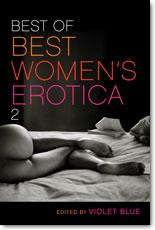

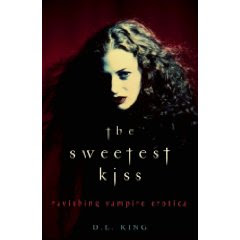


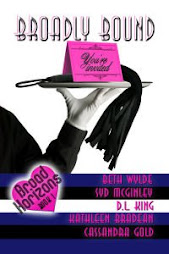.jpg)
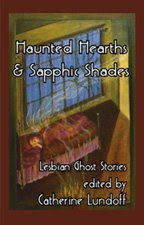

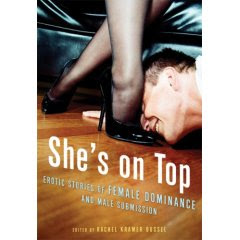





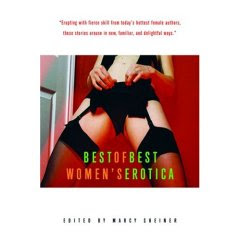


No comments:
Post a Comment